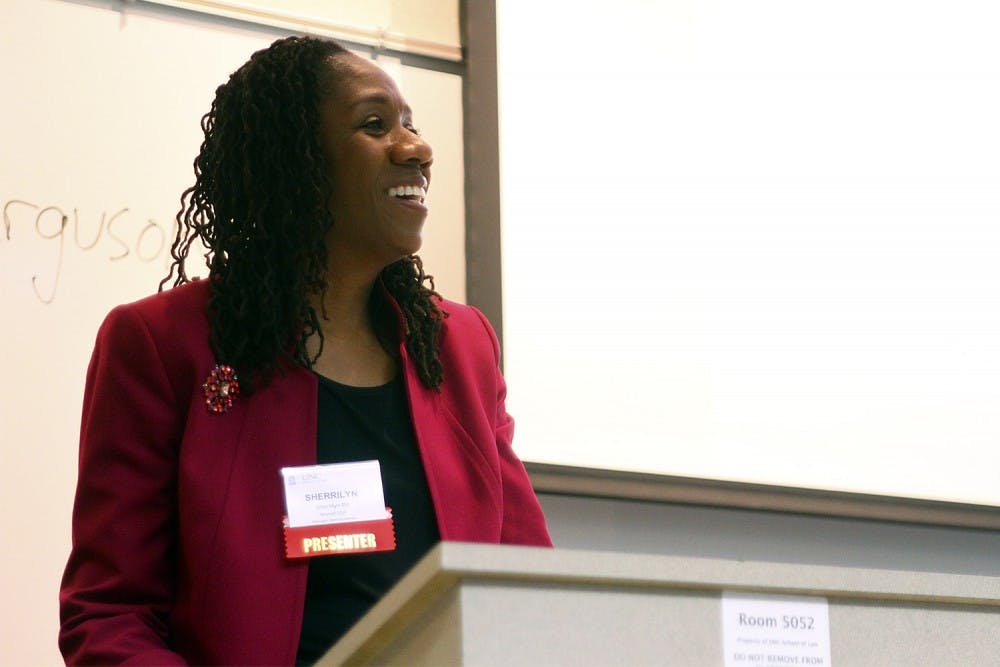Ifill was the keynote speaker on Friday at the UNC School of Law as part of an all-day event titled “Police Violence in the Wake of Ferguson and Staten Island.” The conference brought together people from a variety of backgrounds, including police officers, lawyers, professors and students.
Ifill spoke about her own experience in civil rights, which she called “democracy maintenance work.”
She said she was 10 years old in Queens, N.Y., when Clifford Glover, also age 10, was shot by a police officer. The police officer in this case, Thomas Shea, was indicted but later acquitted by a jury despite being fired by the New York Police Department.
“It stayed with me for 40 years,” she said.
Sean Yau, a UNC law exchange student from the University of Hong Kong, said he agreed with Ifill that problems similar to the Michael Brown and Eric Garner cases have existed for a long time.
“This racism is embedded in years and generations of this country,” Yau said.
Ifill presented possible short-term and long-term solutions to decrease issues with police violence, which included using implicit bias training and body cameras.
She emphasized how little time police officers have to make decisions and said they might often act on their neurological impulses before fully evaluating the situation.




